Tsinghua High School U17 Claims the Title! Campus Football Takes a Leading Role in the China Youth League
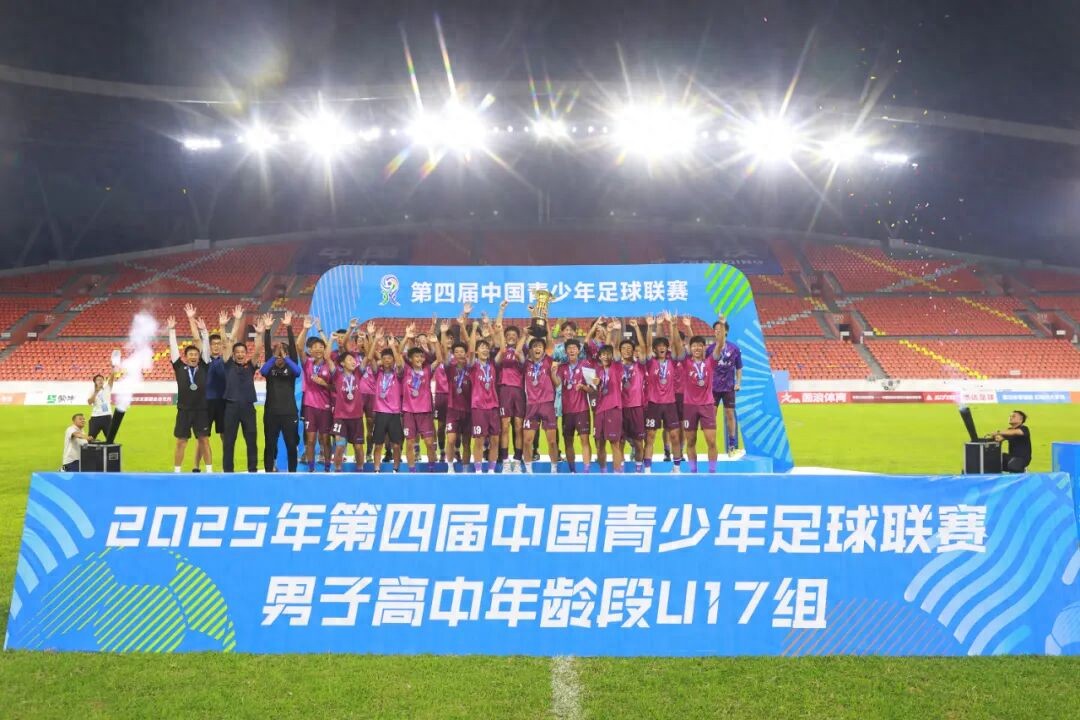
Written by Nan Nan The final match of the second stage of the 2025 4th China Youth Football League (2025 CYFL) U17 boys’ high school age group national finals took place at the New District Sports Center in Zhaoqing, Guangdong. Tsinghua High School claimed the 2025 CYFL U17 title by scoring two goals in the opening 15 minutes through Xia Xiaoyu and Nan Zixun, beating Chongqing Nankai High School 2-1. Although Chongqing Nankai scored a penalty by Yang Chenxi in the second half to narrow the gap, they missed several scoring opportunities and ultimately finished as runners-up.

The most notable aspect of this final was that both teams were campus representatives. This marked the first time since the CYFL’s inception that no professional club youth teams appeared in the U17 final, and it was the first occasion that campus football teams met in the CYFL final. In the previous three CYFL tournaments, the U17 champions were Zhejiang Professional Football Club U17 A Team (2022), Zhejiang Professional Football Club U17 Green Team (2023), and Jiangning Training Base Team 1 from Jiangsu Province (2024).
In 2015, the “Implementation Opinions on Accelerating the Development of Youth Campus Football” issued by six departments including the Ministry of Education initiated a new era for campus football. Under policy guidance and support, campus football entered a rapid growth phase, with a significant increase in participation and steadily improving team levels. In the 2024 third CYFL, Changsha Yali Foreign Language School won the U13 category, becoming the first campus team in CYFL history to claim a national championship, breaking the professional club teams’ dominance in that age group. The U13 champions in the first two CYFL editions were Shandong Taishan U13 and Shanghai Jiading Huilong U13 respectively.
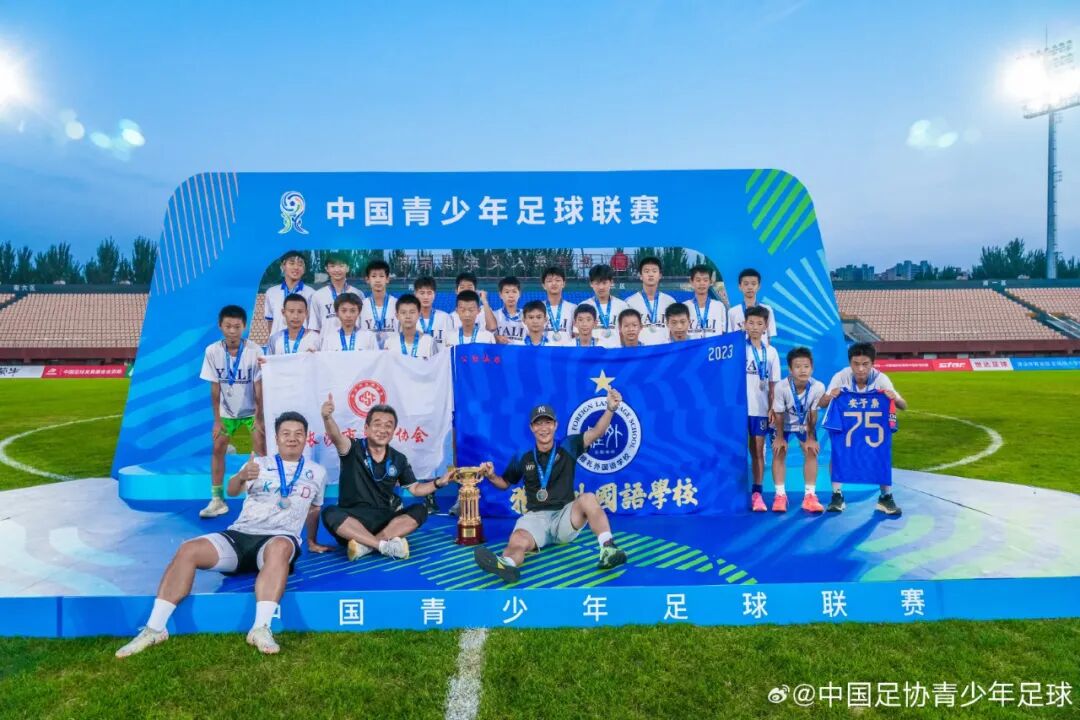
However, the U13 category was not originally a stronghold for professional clubs. Conversely, in the U17 and U19 categories, professional club youth teams have shown clear dominance, capturing all championships in both groups during the first three tournaments. Notably, Shandong Taishan’s youth team achieved a four-time consecutive championship in the U19 category this year.
Therefore, Tsinghua High School and Chongqing Nankai High School breaking the professional club teams’ monopoly in this category is highly significant for the development of campus football. The fact that these two teams reached the U17 final also reflects certain objective factors, such as this year’s CYFL coinciding with the National Games for the first time in four years, which led to many professional youth players being called up for the National Games and unable to compete.
Nonetheless, the progress of campus teams compared to a few years ago remains evident. Four players from the champion Tsinghua High School were selected for the latest U17 national team training camp. Runner-up Chongqing Nankai High School has consistently participated in the CYFL; last year, they defeated Shanghai Port’s youth team, and this year they once again beat Shanghai Port U17 in the round of 16 to reach the quarterfinals. According to team leader Hao Lei, Chongqing Nankai’s entry into this year’s final is the result of the school’s persistent efforts in developing campus football.
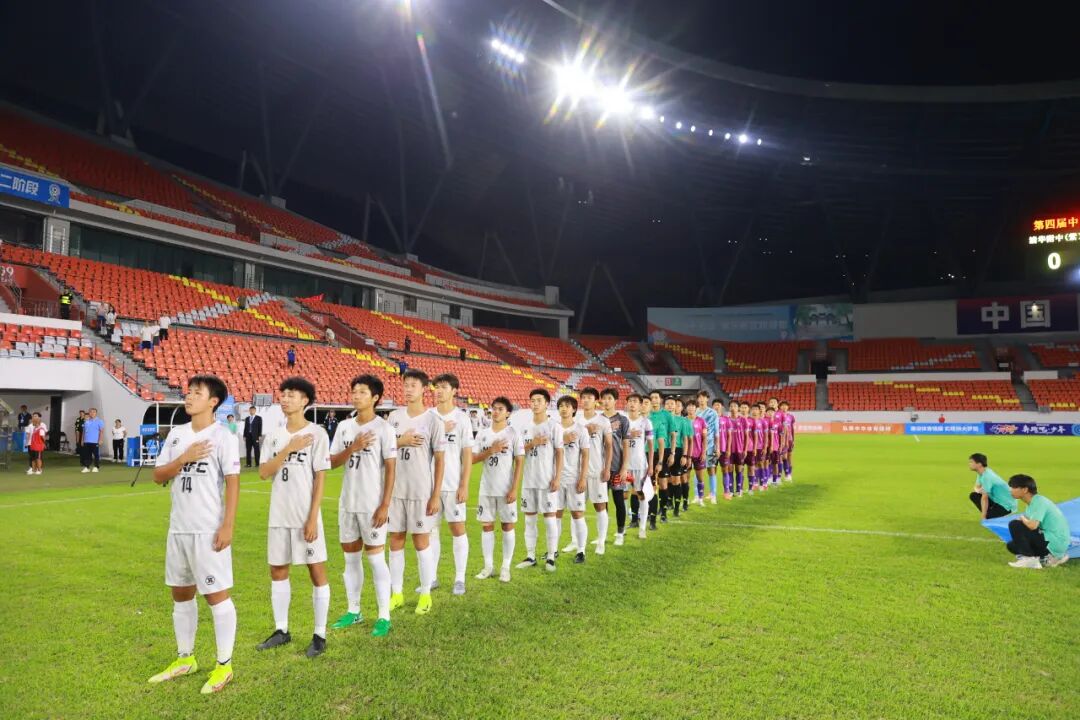
Chongqing Nankai High School began building its youth teams well before 2015. The school actively set up satellite campuses for its youth teams and established multiple levels of squads, creating a mature youth system within campus football. Hao Lei told reporters that due to this mature system and high university admission rates, many talented young players prefer to join Nankai High School’s football team. Earlier this year, Chongqing Nankai participated in the Seven Provinces and Cities Champions Cup held in Chengdu, where five of their youth teams competed, four reached the finals, and they secured one championship and three runner-up titles. This comprehensive and well-established youth structure has supported Chongqing Nankai’s journey to the CYFL final stage.
From Changsha Yali Foreign Language School winning the U13 category in the third CYFL, to Tsinghua High School and Chongqing Nankai High School occupying the final spots in the U17 category of the fourth CYFL, along with Zhengzhou No. 9 High School (6th place), Licheng No. 2 High School (7th place) among the eight quarterfinalists, and Henan Provincial Experimental School (10th) and Changsha Lushan International U17 (12th) advancing to the round of 16 — an increasing number of campus football teams are playing key roles on the CYFL stage.
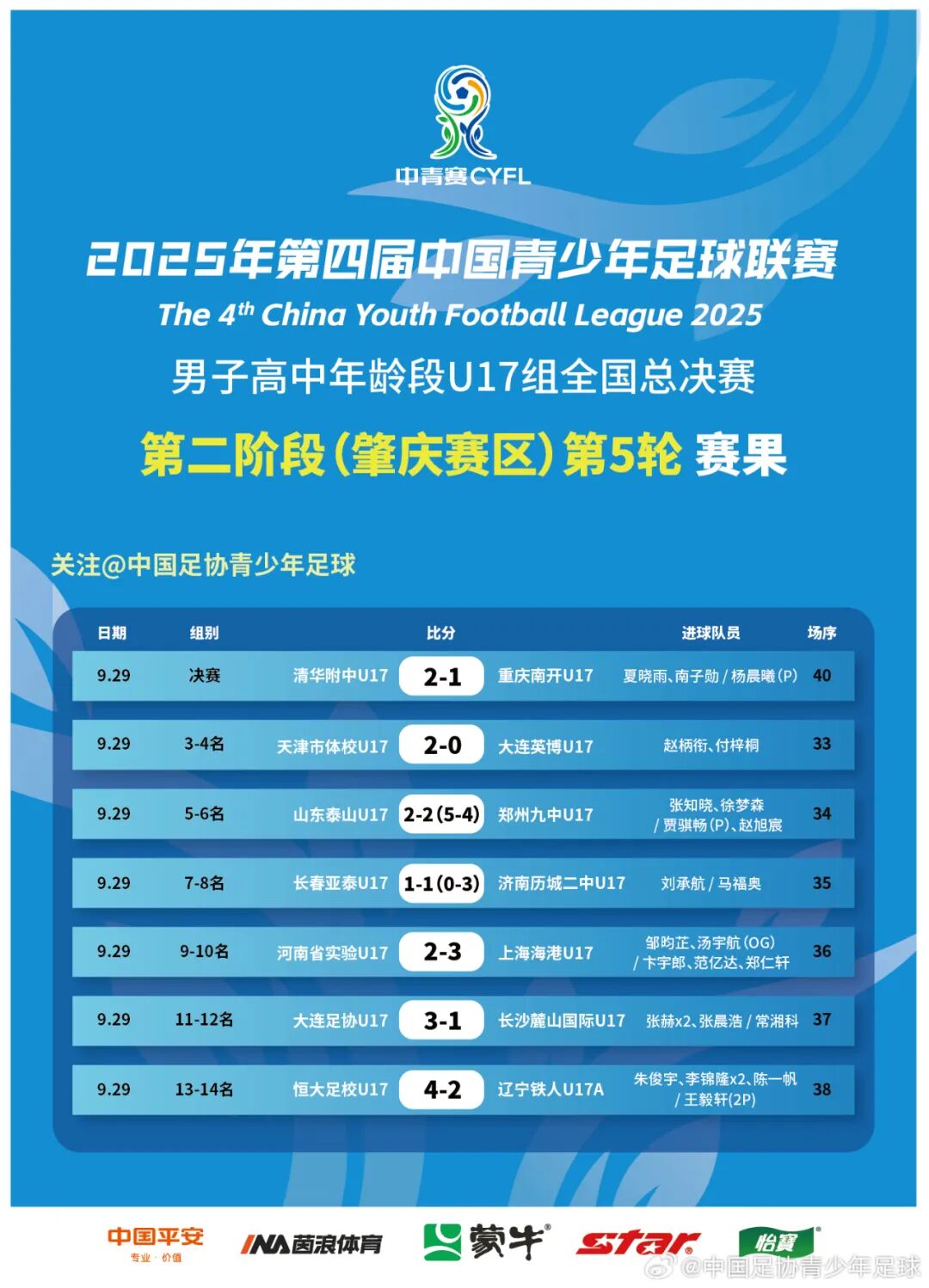
After scoring Tsinghua High School’s second goal in the final, Nan Zixun said in an interview, “Although there is still a gap between our campus teams and professional clubs, we are doing our best to narrow it. I believe our campus football will continue to improve.”
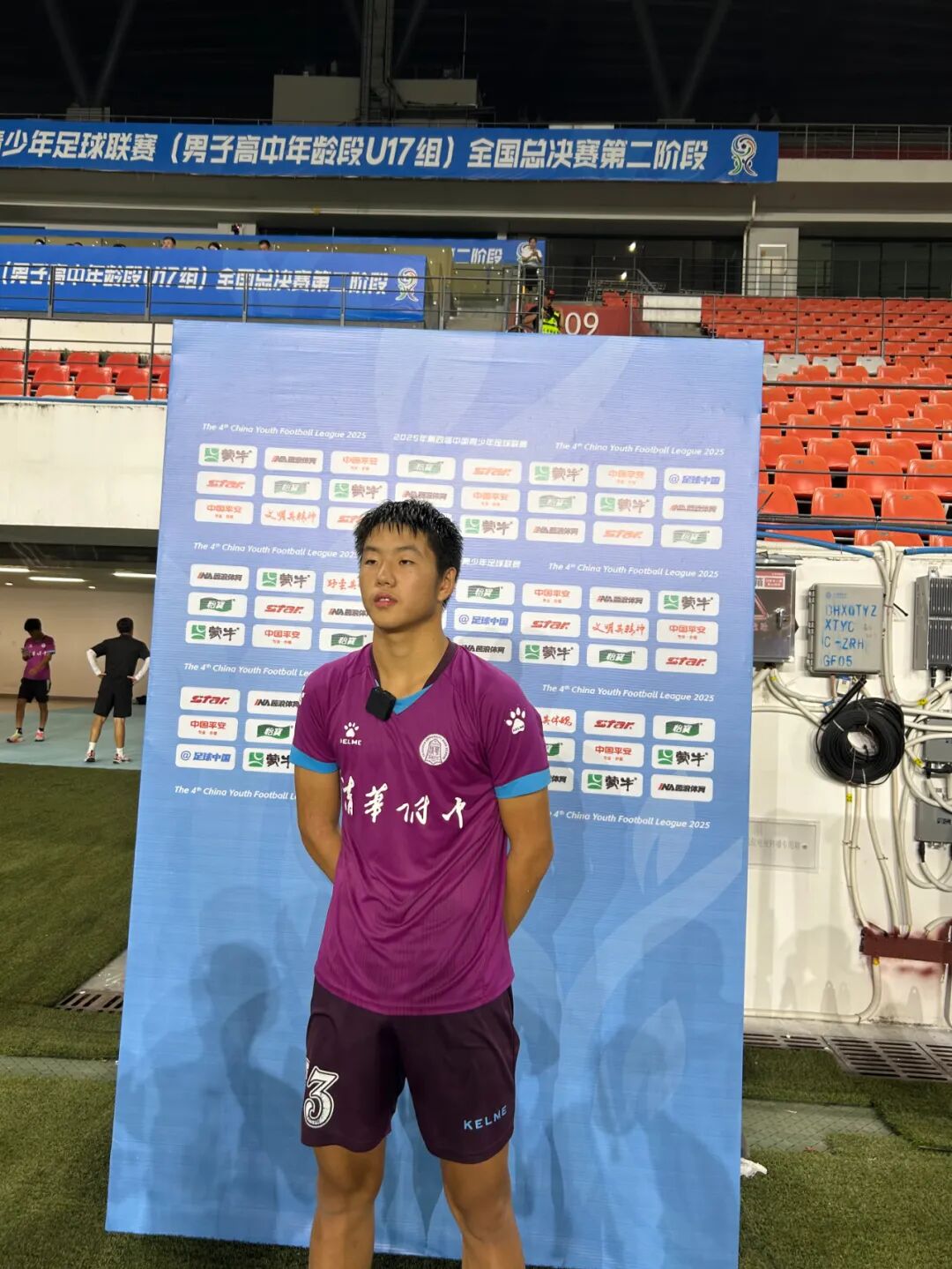

If we consider that from 2015 to 2025, under policy encouragement and promotion, campus football has reached the stage of getting started, then should we look towards more and stronger policies to enable campus football to truly thrive? Whether it is the notable “3+4” model from Zhangjiakou Ice and Snow Sports School at the Century-Old School Football Elite Exchange Tournament, or the “631” and “3+2” promotion pathways, these remain internal advancement channels within campus football. The communication channels between campus football and professional clubs are still missing. Elite youth training in campus football and professional football should complement each other rather than remain isolated.
Tsinghua High School’s Korean team leader Kim Jin-hyung frankly admitted that many campus football players set obtaining athlete certification as their ultimate goal. “This actually diminishes their motivation to strive further,” Kim said. “In Korea, whether in campus football or professional youth teams, the ultimate aim is to enter professional football, even though the competition to achieve this is extremely fierce.”
Given current conditions, even if it is temporarily impossible to establish a communication mechanism between campus football and professional club youth teams at the primary and secondary school levels, we can still explore building a youth training system led by higher education institutions as a beneficial supplement to professional youth training. Meanwhile, the rapid development of grassroots campus football also provides fertile ground for football development in higher education. This approach can avoid the dilemma of choosing between academic advancement and professional football, allowing both paths to be pursued simultaneously and exploring a new elite football training system at the university level.

Furthermore, many domestic youth competitions currently impose certain restrictions on participating teams. For example, some tournaments only allow teams affiliated with the Football Association to enter, preventing some outstanding campus football players from qualifying. This situation is detrimental to talent development, as excellent players lack opportunities to compete on higher-level stages, and it also hinders talent selection, limiting the pool due to participation eligibility issues. In fact, judging from the fourth CYFL U17 competition, despite having less training time, nutrition, and tactical coaching compared to professional teams, some outstanding campus football players have already demonstrated considerable competitiveness.
Perhaps professional club youth teams will reclaim the U17 championship in next year’s fifth CYFL, but as campus football continues to develop, we will see more campus representative teams appearing in the round of 16 and even the quarterfinals. With policy support and guidance, campus football has already taken off, and it is foreseeable that the day when campus football truly flourishes will not be far away.
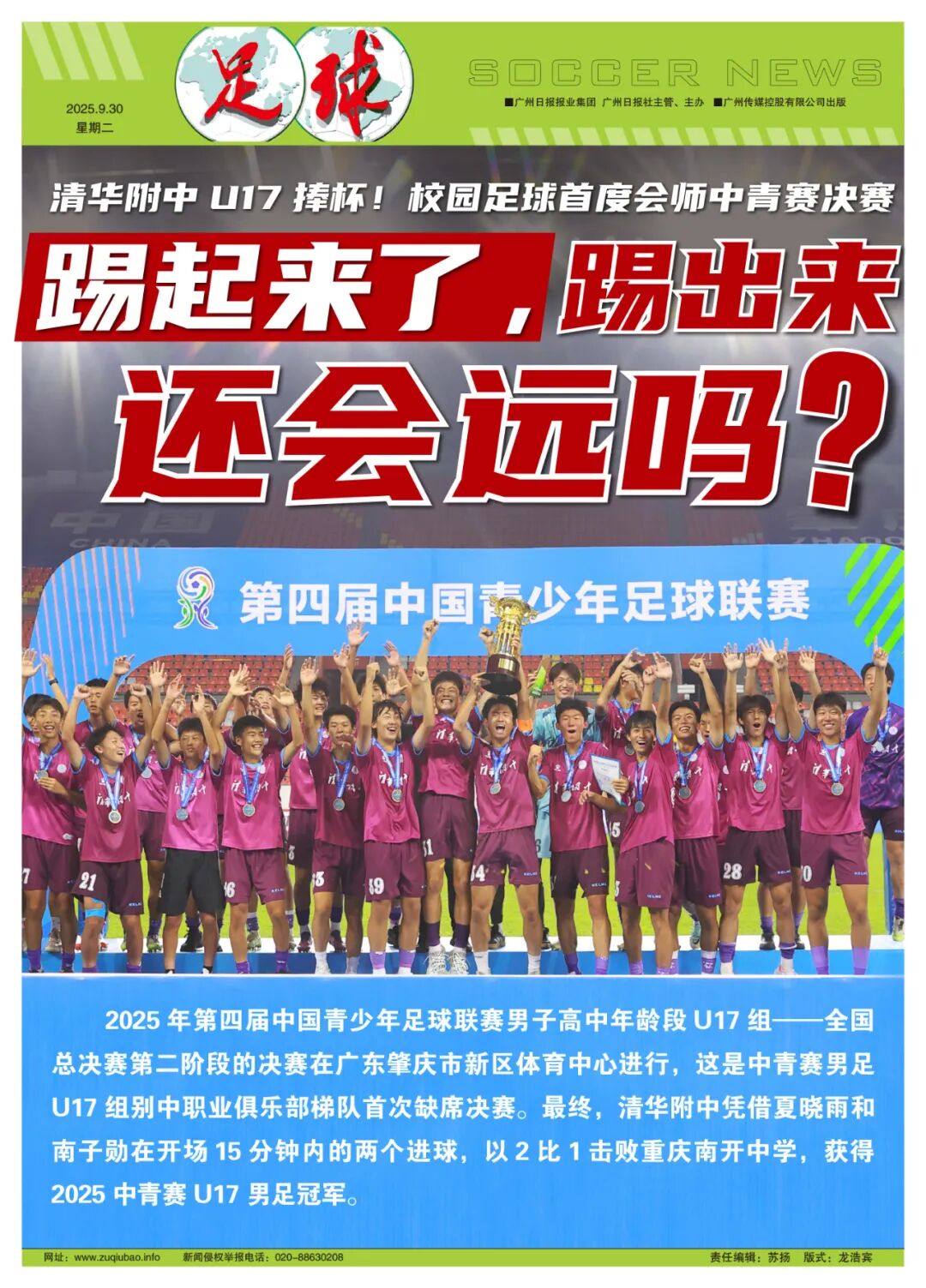










 Links
Links
 Contact
Contact
 App
App


